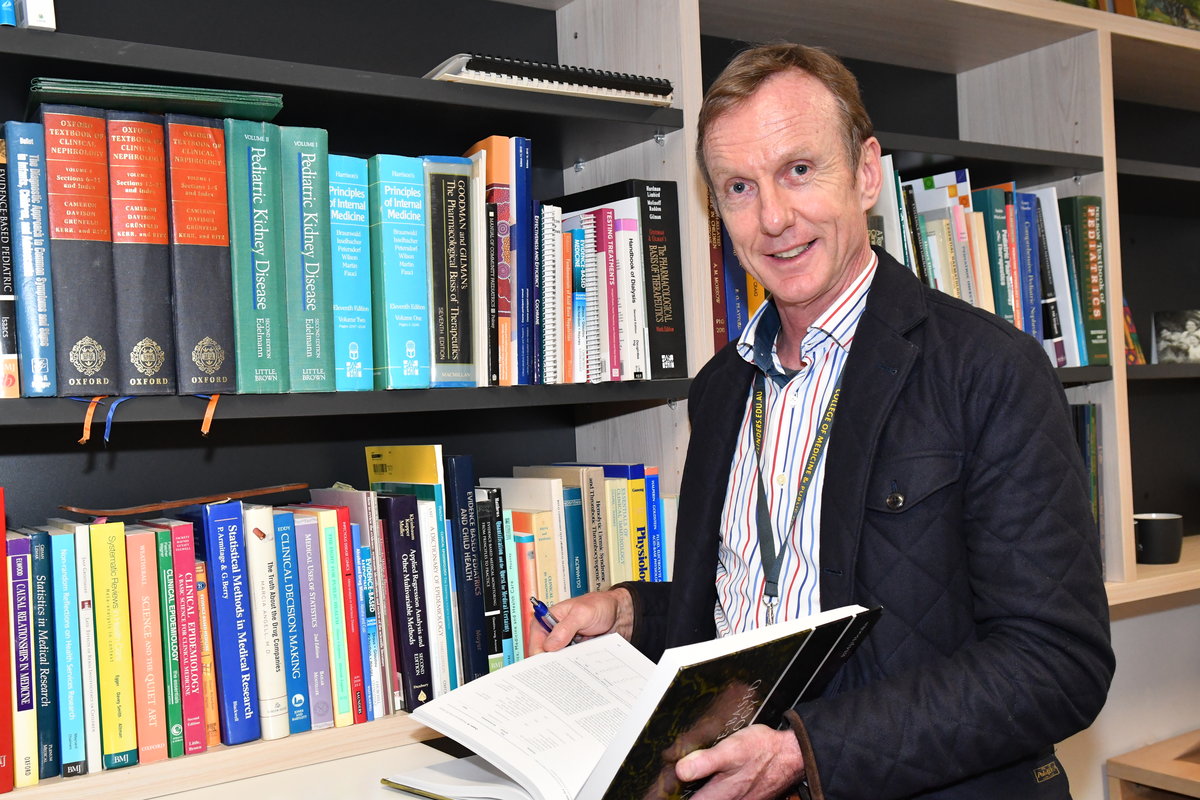
Aboriginal and Torres Strait Islander health, HIV transmission in remote communities, pelvic pain, and treatments for conditions such as cancer, diabetes and heart attacks are amongst the successful Flinders University research initiatives awarded funding in the latest round of National Health and Medical Research Council grants.
Flinders researchers secured $12,189,512 for 11 new projects in categories of postgraduate scholarships, synergy grants, clinical trials and cohort studies, ideas grants, plus an additional $69,694 for equipment.
Deputy Vice-Chancellor (Research) Professor Robert Saint says it rounds out a stellar 12 months for Flinders.
"2019 has been a strong year for our medical researchers who have been awarded $14,634,905 in NHMRC funding in total. This is the 12th highest funding nationally, and represents a 14 per cent success rate, the best of any South Australian university" Professor Saint says.
"It is testament to the calibre of our researchers, and the important, life changing research they're pursuing that will contribute to people leading healthier lives.
"As a university we are committing an additional $100 million to our research efforts between now and 2025 to elevate the scope and impact of our research endeavours - we are especially keen to ensure our discoveries are supported to get out of the lab and into society where they can make a difference.
"Our health and medical research factors highly in our ambitions, as evidenced by the creation of our new Flinders University Health and Medical Research Institute, and the imminent development of a new research facility at the heart of our Flinders Village development" Professor Saint says.
The successful recipients and their research initiatives are:
Associate Professor Jillian Carr, ideas grant $465,185.00
Defining the action of Vav proteins in dengue and zika virus infection
Dr Joel Castro Kraftchenko, ideas grant $560,337.00
Decoding the pathophysiology of chronic pelvic pain associated with endometriosis and related visceral comorbidities
Professor Peter Catcheside, ideas grant $543,135.00
Translating a highly informative new method of inspiratory effort measurement into improved monitoring and outcomes for mechanically-ventilated patients in intensive care
Professor Jonathan Craig, clinical trials and cohort studies grant $1,724,268.00
Antecedents of Renal Disease in Aboriginal Children and young adults study - ARDAC
Mr Jose Estevez, post graduate scholarship $82,445.50
Defining the Epidemiology and Risk of Diabetic Retinopathy among Indigenous Australians: A Longitudinal Cohort Study
Mrs Kristen Foley, post graduate scholarship $113,963.00
the Social and Commercial Determinants of Alcohol Consumption for Middle-Aged Australian Women
Professor David Lynn, ideas grant $704,312.00
Targeting the gut microbiota to improve the safety and efficacy of agonistic cancer immunotherapies
Mr Gareth Rees, equipment grant $69,694.00
Associate Professor James Ward,
ideas grant $2,455,034.00
Implementing a precision public health approach to eliminate sexually transmitted infections and control HIV in remote Australia
synergy grant $5,000,000.00
Eliminating endemic sexually transmissible infections in remote Australia using targeted multidisciplinary strategies
Dr Angela Xun-Nan Chen, post graduate scholarship $94,405.50
Understanding the adverse cardio-metabolic effects of glucocorticoids - the clinical and biological determinants
Associate Professor Vladimir Zagorodnyuk, ideas grant $446,386.00
Critical role of transient receptor potential channels in the sensory mechanisms underlying bladder dysfunction in cystitis
Previously announced 2019 Flinders University recipients receiving a combined $2.591,875.25 are Professor Robyn Clark, Mr Hailay Gesesew, Associate Professor Taher Omari, and Associate Professor Alan Wigg.






